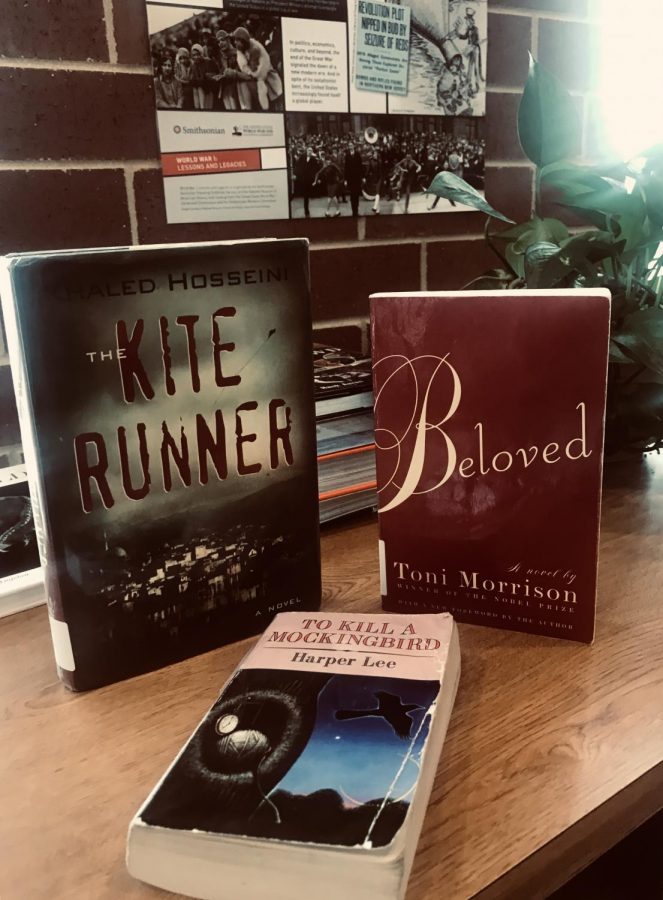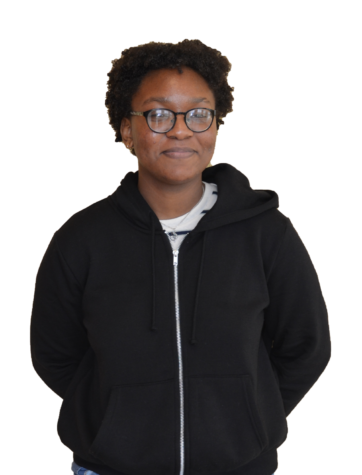Banning Books: Should students be protected from harsh topics?
February 12, 2020
In my English class we are reading a book called The Kite Runner by Khaled Hosseini. The book had me hooked from the first page; I couldn’t stop flipping the pages to see what would happen next.
In the book there is a scene where a character gets sexually assaulted. When I read the scene I found it quite disturbing. Sexual assault is something that gets discussed often, but I didn’t expect to read about it in my English class. Regardless of how I felt when I read it, I knew that it was a reality that many have experienced, so I knew it was important to keep reading even if it made me uncomfortable.
If you look at the most challenged books of 2019, according to the American Library Association, there are some recurring themes that include sensitive topics. This list includes books that touch on a range of issues regarding LGBTQ+ issues, teen suicide, racism, sex, drug use, and violence. Those who oppose these books being taught public schools express their concern with books, including popular titles such as The Hate U Give’ by Angie Thomas, which was deemed ‘’anti-cop’ by one critic; The Color Purple, which was described by some parents as “smut’’ and labeled ‘’X-Rated’’; and Two Boys Kissing by David Levithan, which has been challenged for ‘’sexually explicity displays of homosexuality and eroticism.”
Critics believe that students shouldn’t be exposed to topics they deem inappropriate in school for fear that this exposure will influence them to participate in acts that will corrupt them or harm them.
When I was in the 9th grade we read To Kill a Mockingbird by Harper Lee, a book that gives a child’s view of a variety of topics, most notably racism and injustice in the 1930’s south. The main character and narrator, Scout Finch, presents the dilemma faced by her father, Atticus Finch, who is an attorney assigned to defend a black man falsely accused of raping a white woman. To Kill a Mockingbird is a story about civil rights, prejudice, perception, and other intriguing topics, which makes it very valuable.
The book makes us question our morality, and how we treat others. It’s a coming of age story blended with the reality of social problems in the 1930s. It’s a book that I believe every student should read. Eliminating it from schools because of outside pressure is wrong. It provides a look into the prejudices towards African Americans during a Jim Crow era and a lesson about morality in the face of evil.
Banning books is a form of censorship, the suppression or prohibition of any parts of media. Books are banned for a variety of reasons including the belief that they are considered obscene, politically unacceptable, or a threat to security. When schools ban children from reading certain material, it is because the material is seen as a threat. Thirteen Reasons Why by Jay Asher was banned from some schools because it was thought to promote teen suicide. However, a closer look at the book gives us a message that our actions have repercussions, and if we’re not thoughtful with how we act towards people, we can end up hurting them.
The problem with censorship is that underneath it the truth is there. No amount of censorship can stop these things from occurring. Teen suicide is a real thing: so is depression, racism, and sexual assault. It is thought that banning these books is supposed to protect kids. I believe that it is hurting them. I think that as a result, we are repressing children, rather than helping them develop.
Children can’t be protected from things that we are supposed to prepare them for. We should be teaching kids about the world, not leaving them in the dark to figure it out themselves.
All of these books contain situations that are hard to read, but the bottom line is, they should be read. Not all books are supposed to make us feel good; some are supposed to ignite fear. Some scenes are hard to read, and it makes it difficult to turn the next page, but when we turn the page; we learn something new about the world.
There are so many different forms and themes in literature, and we’re lucky that we get to read all books, not just the ones that have happy endings.













































